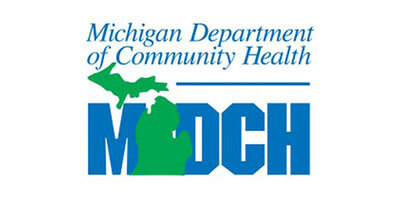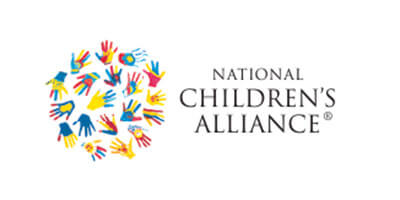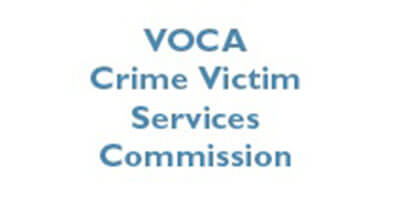What We Do
Home » What We Do
Together, we can do more
What We Do
The Child Advocacy Center of Lapeer County coordinates the investigation, prosecution, and treatment of the most severe cases of child abuse in Lapeer County. As the only child advocacy center in Lapeer County, we serve children from birth through age 17.
All services are provided in a nurturing, friendly and safe environment at no cost to a child’s family. Last year, CAC Lapeer served more than 490 children (and their caregivers) who were sexually abused, severely physically abused, or who had witnessed a violent crime.
Forensic Interviewing
Child-friendly forensic interviews are conducted on behalf of law enforcement and other investigative agencies, when there has been a report of child sexual abuse, serious physical abuse, or when a child has witnessed a violent crime. Investigators watch on a live feed while working together to make investigations as seamless and effective as possible. This collaborative process is based on the nationally recognized Child Advocacy Center model.
What is a Forensic Interview?
- To obtain information that will either corroborate or refute allegations or suspicions of abuse and neglect.
- To obtain information from a child that may be useful in a legal proceeding.
- To assess the safety of the child’s living arrangements.
- To assess the need for medical treatment and psychological care.
Medical Investigation
At the Center, we have an on-site, specially-trained pediatric sexual assault nurse examiner (Pedi-SANE) to perform forensically sound medical examinations. Medical services are provided (free) in our child-friendly examination room, fully-equipped and designed with children in mind.
Beyond the physical component of the exam, our Pedi-SANE Nurse providers help assure parents that their child is healthy and that if abuse has occurred, it will not be visible to others. Our nurses offer extensive, one-on-one consultation not received during a regular doctor’s visit and take as much time as necessary to help the children by explaining each step of the exam and finding ways to put the child at ease. Although there are very rarely physical signs of sexual abuse, many families find reassurance knowing that no permanent physical damage has been done.
Our center also serves as the umbrella agency for the “The Sexual Assault and Domestic Violence Coalition with SANE-SART Services of Lapeer County,” which provides emergency scheduled forensic medical evaluations for adult victims of sexual assault.
Family Advocacy
Therapy
The Center has several treatment options including Trauma-Focused Cognitive Behavioral Therapy (TF-CBT), trauma-informed individual and family therapy.
Trauma–informed therapy helps children and adolescents and their caregivers to manage feelings, talk about the trauma, and develop plans for feeling safe in the future.
Parents and guardians will be asked to participate in the majority of their child’s sessions in order to add to their child’s sense of support in the healing process as well as share and learn about their own emotional responses to the trauma.
All therapy sessions are offered at no cost to a child’s family.
Prevention and Education
Our organization provides many meaningful services to help young victims of abuse and neglect. As part of our comprehensive approach we offer highly effective and proven prevention programs to elementary, middle and high school students throughout Lapeer County.
All children deserve to be safe – at home and in the community. Each of us has a responsibility to ensure that all children have safe, nurturing relationships and environments and to learn how to recognize and respond when children and teens need help due to concerns about abuse or neglect. The Center offers a variety of educational opportunities to prepare for this responsibility. Groups of all kinds may request training, including educators, parents, youth serving organizations, communities of faith, and other concerned citizens.
Elementary School Prevention
The “Personal Safety and Awareness Program” is presented to all 2nd and 4th graders in Lapeer County. This sensitive, comprehensive program teaches children in a positive, non-threatening way the information they need to protect themselves from sexual assault.
The Program is taught in two one-hour sessions by a combination of Child Advocacy Center staff, volunteers and law enforcement. The program helps children identify people they could talk to if they had a problem, learn how to avoid dangerous situations, and know what to do to keep themselves safe. The program stresses the importance of talking to a trusted adult whenever a child feels confused or does not like a touch from someone.
Personal Safety and Awareness Pledge
- I am somebody.
- I have the right to be safe from harm.
- I have the right to tell.
Middle School Prevention
The Child Advocacy Center provides a wide range of age appropriate prevention programs and presentations to all middle school students. Topics range from bullying, sexting, internet crimes, alcohol, drugs and dating violence.
High School Prevention
The Child Advocacy Center provides, a wide range of age appropriate prevention programs and presentations to all high School students. Topics range from bullying, sexting, internet crimes, alcohol, drugs and dating violence.
One of our high school prevention programs that was designed and implemented by our team is called “Legal Ramifications of Your Actions”. This is a vital program/component that will help ensure students are aware of the consequences to many social-situation actions. It is essential to take a proactive approach and educate our youth regarding healthy behaviors, personal boundaries and recognizing distress within themselves or among their friends. We will provide basic information, thereby encouraging the students to think about their behaviors, while learning about the potential consequences; this will enable them to make more appropriate choices. It is our intention with this program to prevent the ruining of lives through uninformed, careless and/or reckless choices.
Stewards of Children Training
Darkness to Light’s Stewards of Children is a revolutionary sexual abuse prevention training program that educates adults to prevent, recognize and react responsibly to child sexual abuse, and motivates them to courageous action. The Stewards of Children program is designed for organizations that serve children and youth and any/all adults interested in protecting children. This program recognizes that adults are responsible for the safety of children. Classes are held regularly. If you are interested in attending a class or scheduling a class for your group please email admin@caclapeer.org.
THROUGHOUT THIS TRAINING, YOU WILL LEARN:
- The 5 Steps to Protecting Our Children
- What to do if a child discloses to you
- Increase your awareness of the prevalence and circumstances of child sexual abuse.
- Signs/Symptoms of Child Sexual Abuse
- Risk Factors of Abuse
- Consequences of Abuse
- Mandated Reporting Policies
and much more!
The Child Advocacy Center of Lapeer County will not discriminate against any individual related to programs and services provided – either directly or indirectly – because of race, color, religion, national origin, ancestry, age, sex, height, weight, marital status, gender identify (or expression), sexual orientation, or physical or mental disability unrelated to the individual’s ability to receive services.





